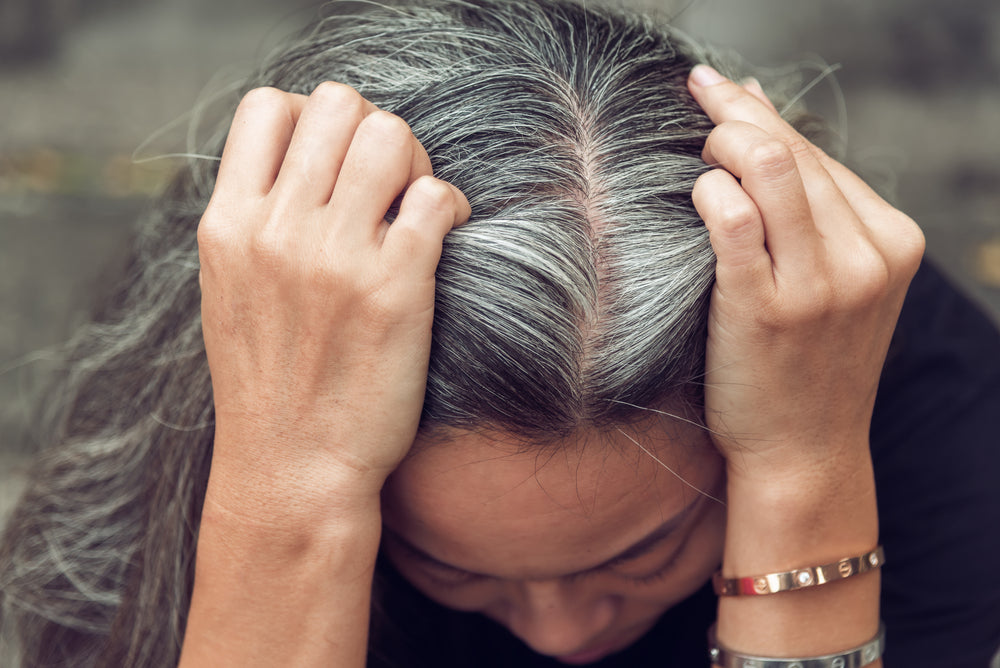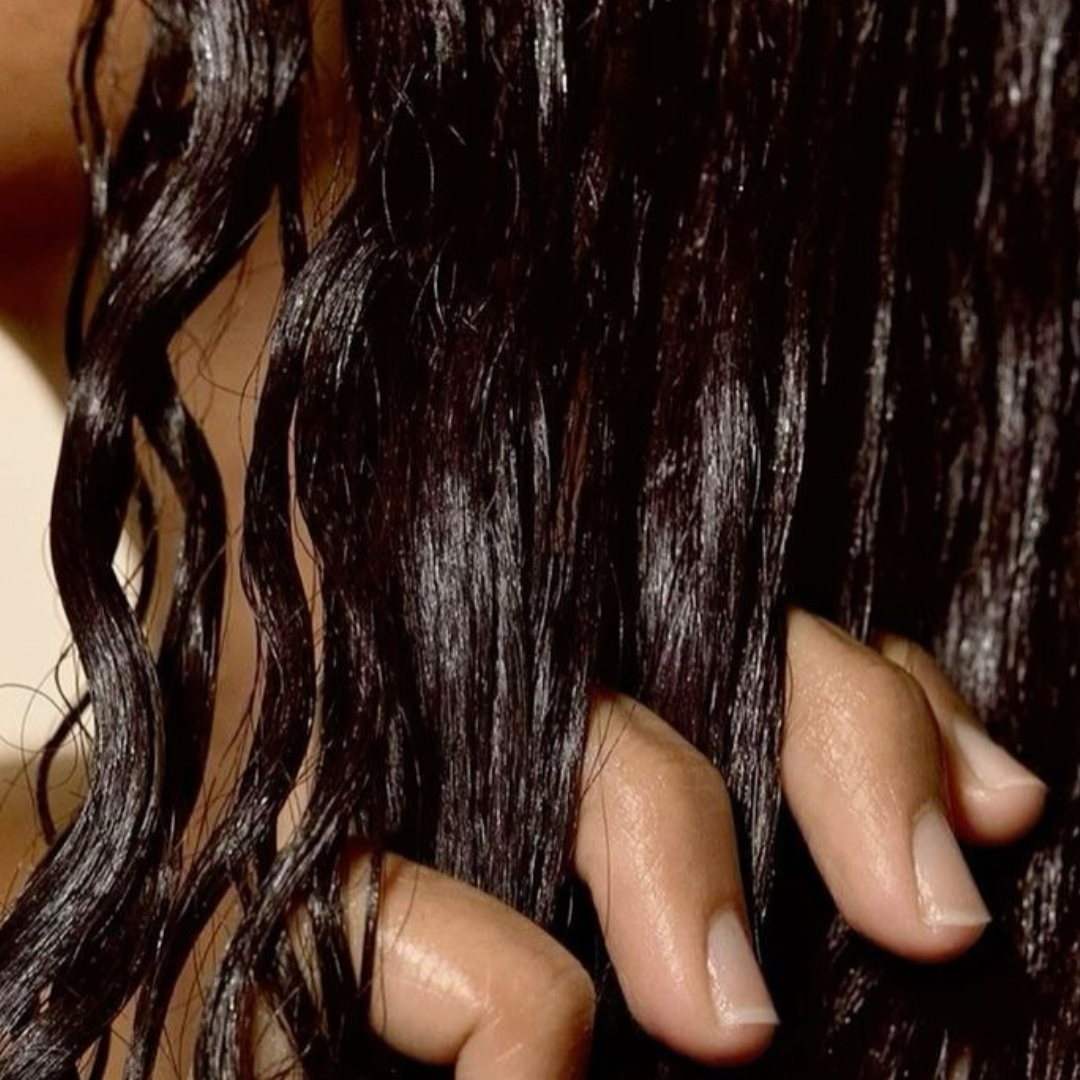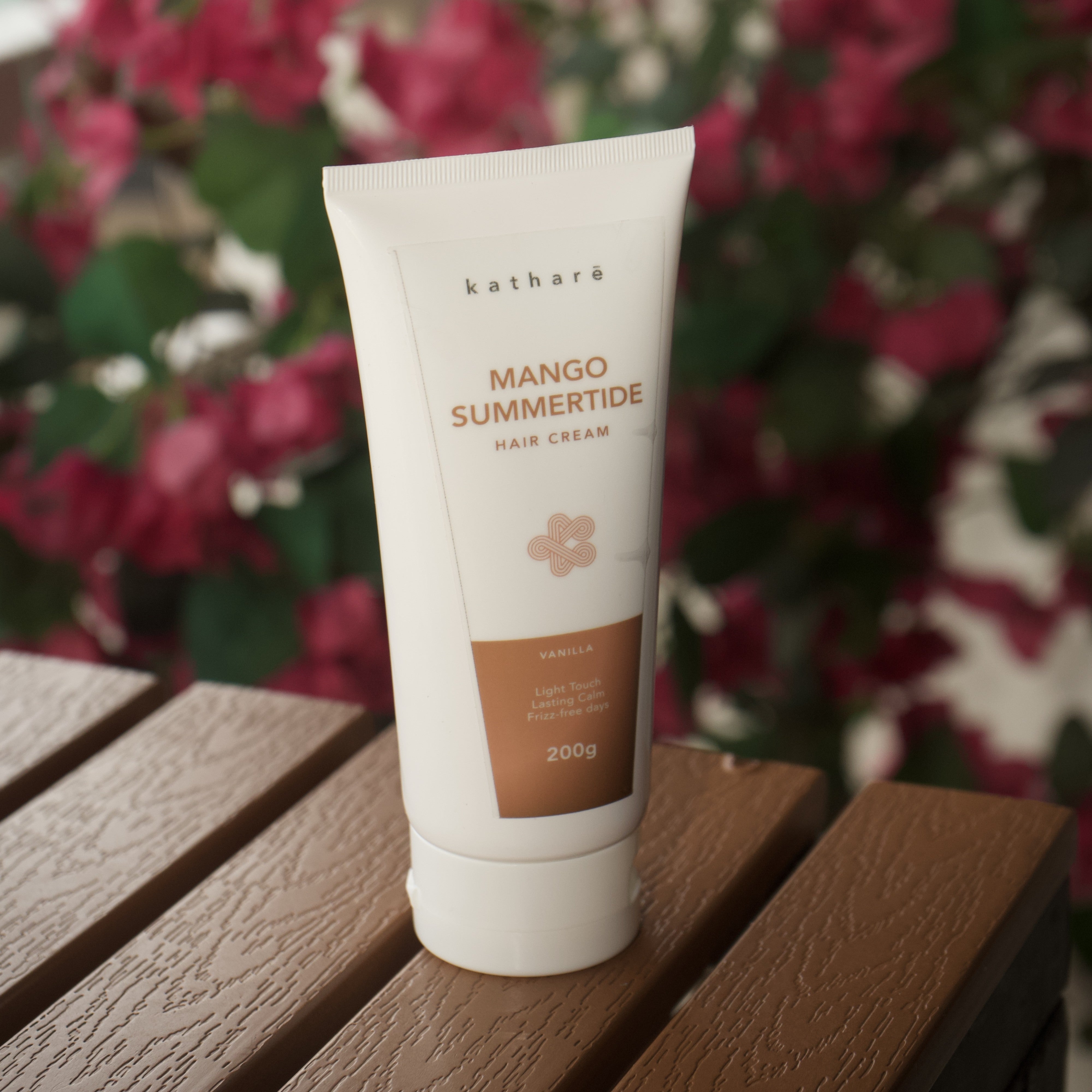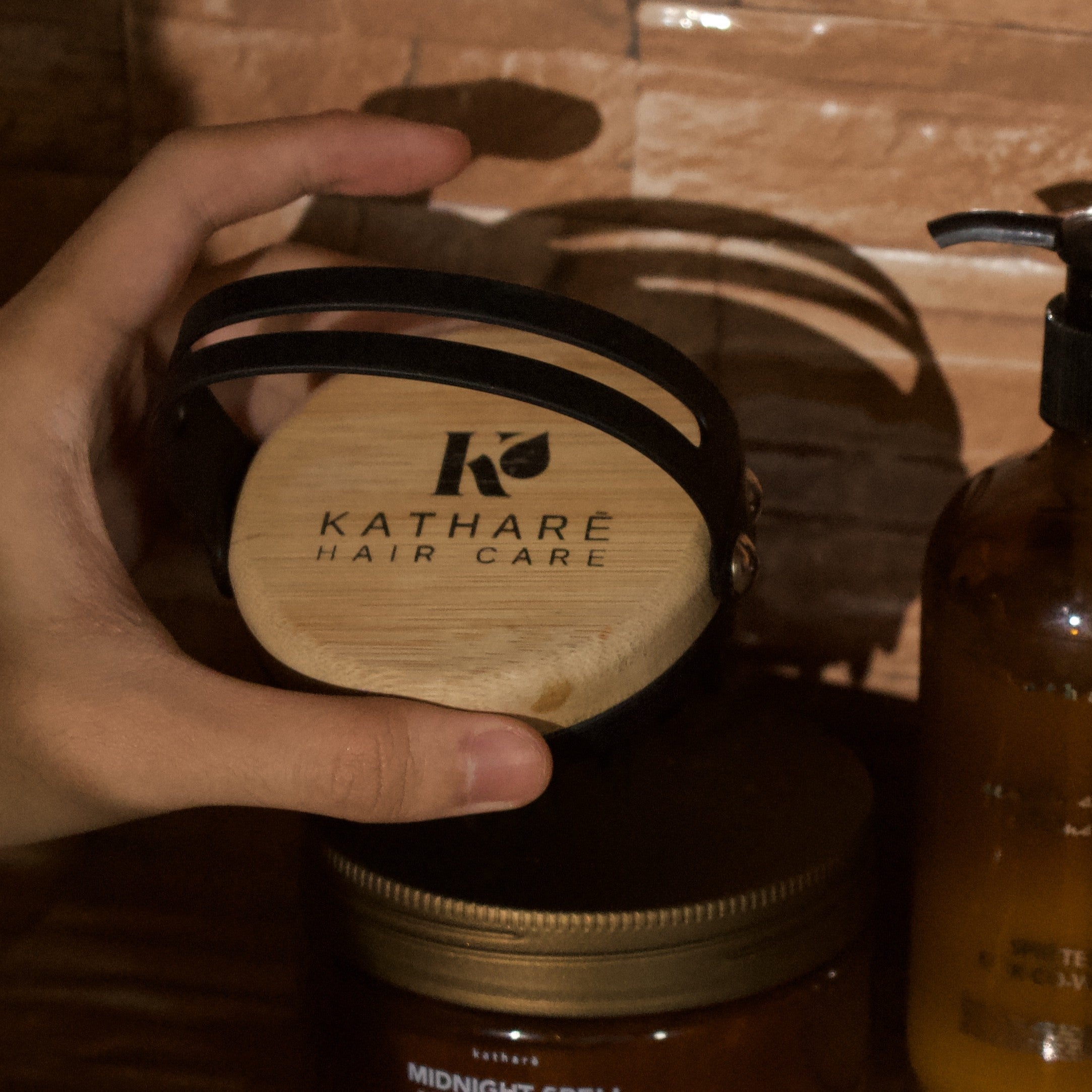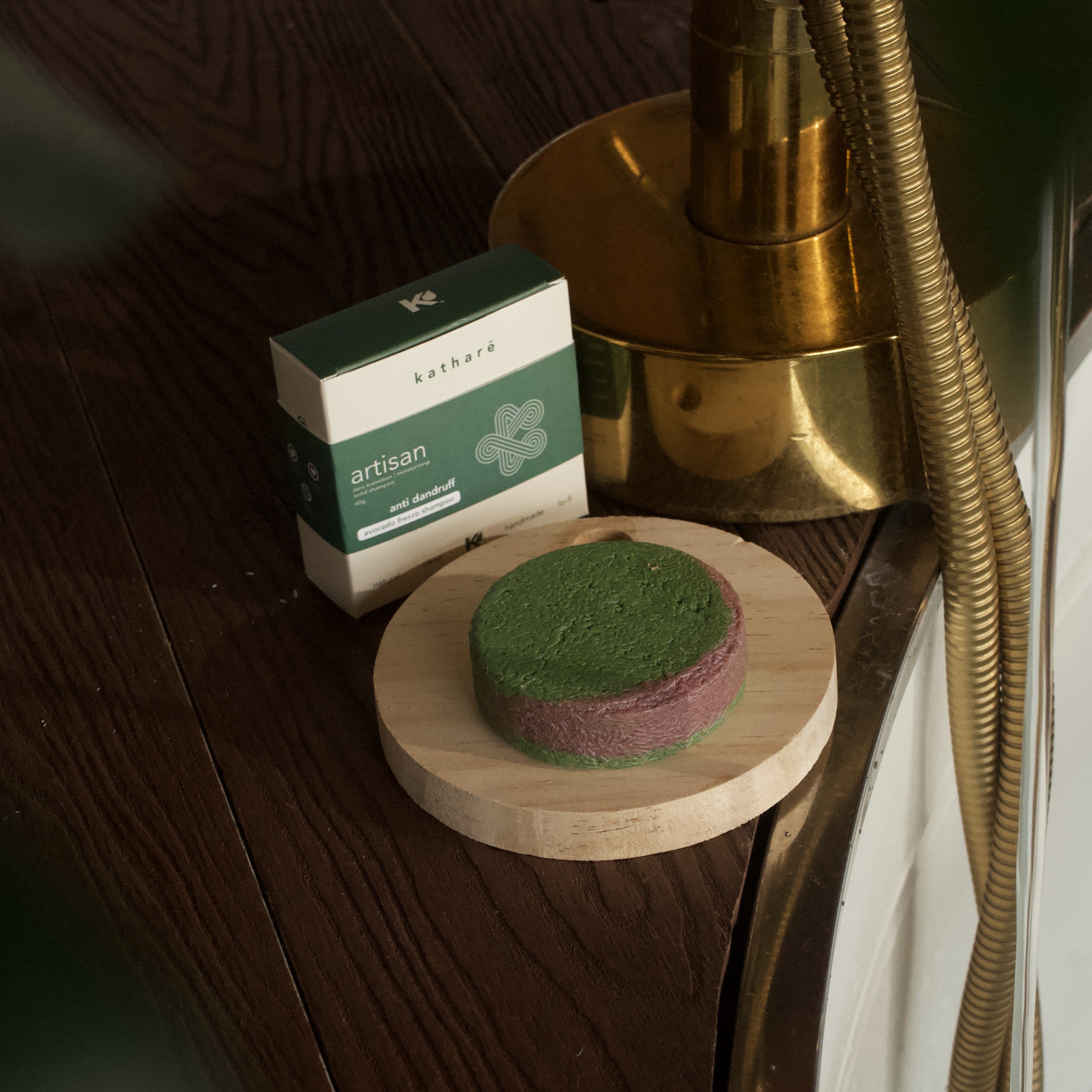Katharē Hair Tips
Unveiling the Truth About Hair Loss
Hey there! Let's talk about something that affects many of us at some point in our lives—hair fall. Whether you're noticing a few extra strands in your brush or facing more significant thinning, understanding the factors at play and how to address them can make a big difference in your journey to healthier hair. Understanding Hair Growth Our hair goes through cycles of growth, rest, and shedding. Normally, each hair follicle follows its own timeline, with some hairs growing actively for several years before transitioning into a resting phase and eventually falling out. This shedding is natural and happens to everyone, but when it becomes excessive or noticeable, it's time to take notice. Our hair growth cycle is a fascinating process that involves three main phases: Anagen Phase: This is the active growth phase where hair follicles are actively producing hair. The length of this phase can vary from 2 to 7 years, and hair grows about 1 cm every month.Catagen Phase: A transitional phase lasting about 2-3 weeks, where hair growth stops and the outer root sheath shrinks. This phase prepares the hair follicle for the resting phase.Telogen Phase: The resting phase lasting around 3 months, where hair is released and falls out naturally. Around 10-15% of hairs are in this phase at any given time. Causes of Hair Fall Hair fall can be triggered by a variety of factors, including:Genetics: Family history plays a significant role in determining susceptibility to hair loss patterns such as male or female pattern baldness.Hormonal Changes: Fluctuations in hormones due to pregnancy, childbirth, menopause, or conditions like polycystic ovary syndrome (PCOS) can contribute to hair fall.Medical Conditions: Scalp infections, autoimmune diseases like alopecia areata, and chronic illnesses such as thyroid disorders can affect hair health.Nutritional Deficiencies: Inadequate intake of essential nutrients such as vitamins (especially Biotin, B12, and D), minerals (iron, zinc), and proteins can lead to weakened hair follicles and increased hair shedding.Stress: Physical or emotional stress can disrupt the hair growth cycle, leading to a condition known as telogen effluvium, where hair sheds more than usual.Environmental Factors: Exposure to pollutants, UV radiation, and harsh chemicals in hair products can damage hair follicles and contribute to hair loss over time. Diagnosing Hair Loss To determine the underlying cause of hair loss, it's essential to consult with a dermatologist or trichologist who specializes in hair health. They may conduct:Physical Examination: Assessing patterns of hair loss, scalp health, and overall hair density.Blood Tests: Checking for levels of hormones, vitamins, and minerals to identify any deficiencies or imbalances that could be contributing to hair loss.Scalp Biopsy: In rare cases, a small sample of scalp tissue may be taken to examine hair follicles under a microscope for a precise diagnosis. Treatment Options Treatment for hair fall depends on the underlying cause and severity of the condition. Here are some common approaches: Medications: Minoxidil: A topical solution applied to the scalp that can stimulate hair growth and prolong the anagen phase.Finasteride: A prescription medication for men that works by blocking the conversion of testosterone into dihydrotestosterone (DHT), a hormone that can shrink hair follicles.Platelet-Rich Plasma (PRP) Therapy: Involves injecting concentrated platelets from your own blood into the scalp to stimulate hair follicles and promote hair growth. Hair Transplantation: A surgical procedure where hair follicles from donor areas (usually the back or sides of the scalp) are transplanted to balding or thinning areas for natural-looking results. Lifestyle and Home Care: Nutrition: Eating a balanced diet rich in vitamins, minerals, and proteins to support healthy hair growth.Stress Management: Practicing relaxation techniques such as yoga, meditation, or deep breathing exercises to reduce stress levels and support overall well-being.Hair Care: Using gentle shampoos and conditioners, avoiding excessive heat styling and chemical treatments, and protecting hair from environmental damage. Preventive Measures Taking proactive steps to maintain healthy hair can help prevent excessive hair fall:Regular Check-ups: Schedule regular visits with your healthcare provider to monitor overall health and address any underlying medical conditions promptly.Scalp Care: Maintain a clean and healthy scalp by using mild shampoos and avoiding excessive scratching or pulling on hair.Avoiding Harsh Treatments: Minimize exposure to harsh chemicals, excessive heat, and tight hairstyles that can damage hair follicles.Balanced Lifestyle: Incorporate regular exercise, adequate sleep, and a balanced diet to support overall health and reduce stress levels.Hair fall can be a distressing experience, but understanding its causes and treatment options empowers you to take control of your hair health. Whether you're exploring medical treatments, making lifestyle adjustments, or simply adopting a gentler hair care routine, every step you take can contribute to healthier, happier hair.Remember, everyone's hair journey is unique, and what works for one person may not work for another. By seeking professional guidance, staying informed about your options, and being patient with the process, you can find the right approach to manage hair fall effectively.Here's to embracing your hair's natural beauty and enjoying healthier, fuller-looking hair for years to come!
Learn moreUnderstanding Dry Hair: Causes, Treatments, and Prevention
Dry hair occurs when your hair doesn't receive or retain enough moisture. This lack of moisture can make your hair appear dull, frizzy, and prone to breakage. Unlike oily hair, which is caused by an overproduction of sebum (the natural oils produced by your scalp), dry hair often stems from external factors, health issues, or simply genetics.
Learn moreThe Ultimate Secret to Healing Damaged Hair is in Your Kitchen!
Did you know that rice is popular not only for our hungered stomachs but also for our crying-for-help hair?Rice water has been used for centuries in Asia as a natural remedy for promoting healthy hair growth and improving the overall health of the hair. Some of the benefits of rice water on hair include: Promotes hair growth: Rice water contains inositol, a carbohydrate that can help to strengthen and nourish hair follicles, promoting healthy hair growth.
Learn moreImpact of UV Rays on Your Hair
As we bask in the warmth of the sun, soaking up its radiant energy, we often overlook the potential harm that its ultraviolet (UV) rays can inflict on our hair. While many are aware of the importance of sunscreen for the skin, the effects of UV exposure on our hair remain a lesser-known concern. In this blog post, we delve into the intricate relationship between UV rays and our hair, exploring the various ways in which prolonged exposure can affect its health and vitality. Before delving into their effects on hair, it's crucial to understand the two primary types of UV rays: UVA and UVB. While both types penetrate the atmosphere and reach the Earth's surface, they differ in terms of wavelength and penetration depth. UVA rays, with longer wavelengths, penetrate the skin more deeply, while UVB rays are primarily responsible for causing sunburn and surface-level damage. While UV rays are commonly associated with skin damage, their impact on hair health should not be underestimated. Exposure to UV radiation can have several adverse effects on the hair, ranging from cosmetic changes to structural damage. Here are some key effects: What are the effects of UV rays on hair? Color Fading: Just as UV rays can fade the color of fabrics and furnishings, they can also cause the pigment in our hair to break down. This process, known as photodegradation, leads to the gradual lightening of hair color, particularly in those with dyed or chemically-treated hair. Dryness and Brittle Hair: Prolonged exposure to UV rays can strip the hair of its natural oils, leading to dryness and increased brittleness. This loss of moisture not only affects the hair's texture but also makes it more prone to breakage and split ends. Protein Damage: The proteins that make up the structure of our hair, such as keratin, can be damaged by UV radiation. This damage weakens the hair shaft, resulting in a loss of elasticity and resilience. Scalp Damage: While the hair itself provides some protection to the scalp, prolonged exposure to UV rays can still cause damage to this sensitive area. Sunburn on the scalp can lead to discomfort, redness, and even peeling, while long-term exposure may increase the risk of skin cancer. What preventive measures can be taken? Use UV-Protective Hair Products: Incorporating hair products that contain UV filters or ingredients with natural UV-protective properties, such as certain oils and plant extracts, can help shield your hair from the damaging effects of UV rays. Wear Protective Accessories: Hats, scarves, and other head coverings provide an additional layer of protection against UV exposure, helping to minimize direct contact between the sun's rays and your hair and scalp. Limit Sun Exposure: While it's essential to enjoy the outdoors, especially during the warmer months, be mindful of prolonged sun exposure. Seek shade when possible, particularly during peak UV hours, typically between 10 a.m. and 4 p.m. By incorporating these preventive measures into your hair care routine and sun protection practices, you can help safeguard your hair against the damaging effects of UV rays and maintain its health, strength, and natural beauty for years to come. Let Katharē be your hair's BFF during scorching days! Meet the classy duo for shielding your hair from the sun's rays!
Learn moreHere's to a healthier hair and scalp!
Achieving healthier hair and scalp involves a combination of proper hair care routines, dietary habits, and lifestyle choices. Here are some tips to help you maintain and improve the health of your hair and scalp: Hair Care Routine Regular Washing: Wash your hair regularly with a gentle shampoo suited to your hair type (e.g., oily, dry, curly). Avoid harsh shampoos with sulfates, parabens, and alcohol as they can strip natural oils. Conditioning: Use a conditioner after shampooing to keep hair hydrated. Apply conditioner mainly to the ends of your hair, not the scalp, to avoid buildup. Scalp Care: Exfoliate your scalp once a week to remove dead skin cells and promote blood circulation. Use a scalp treatment or serum if you experience dryness or dandruff. Gentle Handling: Avoid vigorous towel-drying; instead, gently squeeze out excess water and pat dry. Use a wide-tooth comb to detangle wet hair to prevent breakage. Limit the use of heat styling tools (blow dryers, straighteners, curling irons) and use a heat protectant spray if necessary. Regular Trims: Trim your hair every 6-8 weeks to remove split ends and prevent further damage. Dietary Habits Balanced Diet: Eat a balanced diet rich in vitamins and minerals, especially those known to promote hair health like biotin, vitamin E, iron, zinc, and omega-3 fatty acids. Include plenty of fruits, vegetables, lean proteins, and healthy fats. Stay Hydrated: Drink plenty of water to keep your scalp and hair hydrated. Lifestyle Choices Manage Stress: High stress can contribute to hair loss and poor scalp health. Practice stress management techniques such as yoga, meditation, and regular exercise. Avoid Smoking and Excessive Alcohol: Smoking and excessive alcohol consumption can negatively impact hair health. Protect from Environmental Damage: Protect your hair from the sun and harsh weather by wearing hats or using hair products with UV protection. Rinse hair with fresh water after swimming in chlorinated or salty water. Additional Tips Use Natural Oils: Apply natural oils like coconut oil, argan oil, or jojoba oil to your hair and scalp to keep them moisturized and nourished. Avoid Tight Hairstyles: Tight ponytails, braids, and buns can cause hair breakage and traction alopecia. Opt for looser styles. Check for Underlying Conditions: If you experience excessive hair loss or scalp issues, consult a healthcare professional to check for underlying conditions such as hormonal imbalances or nutritional deficiencies. By combining these practices, you can significantly improve the health and appearance of your hair and scalp over time Prevent scalp irritation caused by harmful chemicals. Switch to an effective, yet gentle hair care! "Lovely texture I am so surprised this worked SO WELL. I’m a curly girl and it’s really really hard for me to find shampoo and conditioner that doesn’t dry my hair out but not only does the shampoo not dry my scalp the conditioner works so well hydrating my hair. Will definitely use this for a long time!"
Learn moreBeware: Common Household Cleaner Could Be Damaging Your Hair
Sulfates, particularly sodium lauryl sulfate (SLS) and sodium laureth sulfate (SLES), are common ingredients in many shampoos, soaps, and cleansers due to their effective cleaning and foaming properties. But, at what cost? There are several concerns and potential damaging effects associated with their use on hair and skin: It's time to uncover the truth about the damaging effects of sulfates on our hair and skin. Stripping Natural Oils: Sulfates are powerful detergents that can strip the hair and scalp of natural oils. This can lead to dry, brittle hair and a dry, irritated scalp. Natural oils are essential for maintaining the moisture balance and health of hair and skin. Irritation and Sensitivity: Sulfates can cause irritation, especially for individuals with sensitive skin. They can lead to redness, itching, and inflammation. This is particularly problematic for people with conditions like eczema or dermatitis, as sulfates can exacerbate these issues. Disruption of Skin Barrier: The skin's outermost layer, the stratum corneum, acts as a barrier to protect against environmental damage and retain moisture. Sulfates can compromise this barrier, leading to increased transepidermal water loss (TEWL) and making the skin more susceptible to irritants and allergens. Fading Hair Color: For those who dye their hair, sulfates can accelerate color fading. Because they are strong detergents, they can strip away the color pigments more quickly, reducing the longevity of hair dye. Potential for Long-term Damage: Regular use of sulfate-containing products can lead to cumulative damage. Over time, the persistent stripping of natural oils can result in chronically dry and damaged hair and skin. Environmental Concerns: Beyond personal care, sulfates are also a concern for the environment. They are not easily biodegradable and can contribute to water pollution, affecting aquatic life and ecosystems. But there's good news! A sulfate-free alternative is available! Benefits of Sulfate-Free Shampoo: Retains moisture and repairs hair Retains hair color Gentle on your hair Reduces irritation Safe for the environment Sulfate-free personal care and household cleaning products are formulated with alternative cleaning agents that are gentle on hair and skin while still providing effective cleaning. The result? Healthier, happier hair and skin. So, why not make the switch to sulfate-free haircare products and discover the beauty of healthier hair? Your locks will thank you! Switch to sulfate-free and environmentally friendly hair care now before it's too late! :(
Learn moreScalp Psoriasis: Facts and how to treat it
Scalp psoriasis is a chronic autoimmune condition characterized by rapid skin cell buildup on the scalp, leading to red patches covered with thick, silvery scales. It's a subtype of psoriasis, causing inflammation and abnormal skin cell turnover. The symptoms of scalp psoriasis can vary from person to person but often include: Red patches of skin on the scalp. Silver-white scales or plaques on the scalp. Itching or soreness in the affected area. Dry scalp that may crack and bleed. Hair loss in severe cases, due to scratching or as a result of the condition itself. Scalp psoriasis ranges from mild, with small patches, to severe, covering larger areas and extending beyond the hairline. While uncomfortable and potentially embarrassing, it's not contagious. How to treat Scalp Psoriasis? Use a medicated shampoo: Choose shampoos specifically formulated for scalp psoriasis, containing active ingredients like coal tar, salicylic acid, ketoconazole, or selenium sulfide. These ingredients can help reduce inflammation, itching, and scaling. Rotate between different medicated shampoos to prevent your scalp from becoming resistant to any single treatment. Be gentle when washing: Avoid scrubbing your scalp vigorously, as this can irritate the skin and worsen symptoms. Instead, gently massage the shampoo into your scalp using your fingertips, and then rinse thoroughly with lukewarm water. Limit hair washing frequency: Washing your hair too often can strip the scalp of its natural oils and exacerbate dryness. Aim to wash your hair no more than every other day or as recommended by your dermatologist. Moisturize the scalp: After washing your hair, apply a moisturizer or scalp oil to help soothe and hydrate the skin. Look for products containing ingredients like coconut oil, jojoba oil, or aloe vera, which can provide relief from dryness and itching. Avoid hot water: Hot water can further dry out the scalp and exacerbate symptoms of scalp psoriasis. Opt for lukewarm or cool water when washing your hair to help maintain scalp hydration. Gently remove scales: If you have stubborn scales on your scalp, soften them by applying a warm, damp towel or using a non-medicated conditioner before gently loosening them with a comb or brush. Be careful not to scratch or pick at the scales, as this can lead to irritation and potential infection. Protect your scalp: Wear a hat or use sunscreen on your scalp when exposed to sunlight to prevent sunburn, which can trigger psoriasis flare-ups. Manage stress: Stress can exacerbate symptoms of psoriasis, so practice stress-reduction techniques such as mindfulness, meditation, yoga, or deep breathing exercises to help manage stress levels. Consult a dermatologist: If over-the-counter treatments are not providing relief, or if your scalp psoriasis is severe, consult a dermatologist for further evaluation and treatment options. Try our recommended product for people with sensitive scalp! This mild shampoo bar contains no essential oils and is perfect for those with sensitive scalps. Experience your best hair days without worry!
Learn moreKnowing Your Hair Porosity + Tips!
Hair porosity refers to the hair's ability to absorb and retain moisture. It is determined by the hair's outermost layer, known as the cuticle, which is made up of overlapping scales. Hair porosity can be low, medium, or high, and understanding your hair's porosity can help you select the best hair care products and treatments for your specific hair type. Let us now put our hair to this simple test, shall we? Fill the cup with room temp water, and place a strand of clean hair into it. Watch the strand for just under 5 minutes. If the hair immediately sinks, your hair is... HIGH POROSITY - has a highly lifted cuticle, which allows moisture to penetrate easily but also escape quickly. More products are required to lock moisture in. This hair type will frizz in humid weather. Use heavier products such as thick creams, butter, and oils to help lock in moisture. Rinse your hair with cold water after washing to help close the cuticles and seal them in moisture. Consider using protein treatments to help strengthen your hair and prevent breakage. If the strand gradually sinks, your hair is... NORMAL POROSITY - The cuticle layer is loose but has no holes and gaps, so just enough moisture enters without it leaving again. Use a balanced mix of moisturizing and protein-based products to maintain the health and strength of your hair. Use lukewarm water when washing your hair to prevent damage to the cuticles. Avoid using too much heat on your hair, and always use a heat protectant before using any heat styling tools. If the strand is floating, your hair is... LOW POROSITY - Your hair repels water so requires more time to get fully saturated. Products are not easily absorbed so tend to sit on the hair and build up. Use lightweight products that won't weigh down your hair. Use warm water when washing your hair to help open the cuticles and allow moisture to penetrate. Consider using a clarifying shampoo or treatment to remove buildup from your hair and scalp. It's important to remember that these are general guidelines and what works for one person's hair may not work for another. Experiment with different products and techniques to find what works best for your hair. Achieve the hairstonishing look your hair deserves! "This product delivers. I feel like my child's hair and mine are more manageable and less buhaghag. Plus it makes your hair naturally shine. I love it!"
Learn moreThe truth is out - 5 haircare myths busted!
Don't be myth-taken! It's good to be in the know! Assess your hair and consider its needs while shopping! Are you tired of hearing conflicting advice about how to care for your hair? You're not alone. In the world of haircare, myths and misconceptions abound, leading many people to make decisions about their hair based on faulty information. Let's debunk five common hair myths so you can start taking better care of your locks. Myth 1: Cutting your hair frequently makes it grow faster It's a tale as old as time: the idea that regular trims will magically make your hair grow faster. Unfortunately, there's no scientific evidence to back up this claim. Hair growth is primarily determined by genetics, along with factors like diet, hormones, and overall health. While getting regular trims can help prevent split ends and breakage, it won't affect the rate at which your hair grows. Myth 2: Using cold water to rinse your hair makes it shinier Cold water may give your hair a temporary boost in shine by smoothing the hair cuticle, but it won't provide any long-term benefits. Instead of relying on cold water rinses, focus on using high-quality shampoo and conditioner formulated for your hair type. These products are designed to nourish and protect your hair, leaving it looking shiny and healthy. Myth 3: Brushing your hair 100 times a day will make it healthier Contrary to popular belief, overbrushing your hair can actually do more harm than good. Brushing your hair excessively can lead to breakage and split ends, especially if you're using a harsh or improper technique. Instead of aiming for a specific number of brush strokes, focus on using a gentle brush to detangle your hair and distribute natural oils evenly from root to tip. Myth 4: Oily or fine hair doesn't need conditioner All hair types can benefit from conditioning, including oily and fine hair. However, it's essential to choose the right conditioner for your specific needs. Look for lightweight, non-greasy formulas that won't weigh down your hair or leave it feeling greasy. Applying conditioner primarily to the ends of your hair can help hydrate and protect without adding excess weight. Myth 5: Dandruff is caused by dry scalp While many people believe that dandruff is caused by dry skin, the truth is that it's often the result of a yeast-like fungus called Malassezia that can thrive on the scalp. This fungus can lead to irritation, inflammation, and flaking, resulting in the telltale signs of dandruff. Fortunately, dandruff can be effectively treated with medicated shampoos and other treatments designed to control fungal growth and restore scalp health. In conclusion, it's essential to separate fact from fiction when it comes to hair care. By debunking these common myths, you can make more informed decisions about how to care for your locks and achieve the healthy, beautiful hair you deserve. Remember to focus on proper hygiene, nourishment, and protection to keep your hair looking its best. Love what our customers love!💕 “Love it!!! My hair is naturally wavy and can get dry and frizzy, especially in the heat. Even just after using this hair cream for the first time, I noticed the difference! My hair looks and feels better - without becoming oily or sticky. The mild, pleasant fragrance is a lovely bonus!”
Learn more



